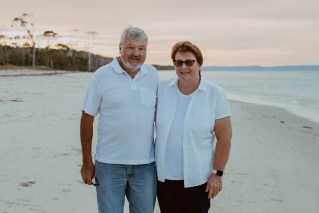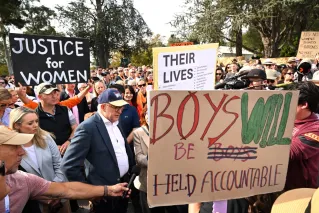Federal laws pose risk for Queensland doctors giving end-of-life advice
Commonwealth laws that make it a crime to facilitate a suicide by phone or online may require the Queensland Government to mobilise doctors and patients.

Photo: ABC
The Palaszczuk Government wants to implement a Voluntary Assisted Dying scheme from January 2023, and is consulting on draft laws prepared by the Queensland Law Reform Commission.
The commission has warned, however, that doctors could potentially face prosecution under Commonwealth laws that make it an offence to use a ‘carriage service’ to counsel, promote or provide instruction on suicide.
Premier Annastacia Palaszczuk has written to Prime Minister Scott Morrison, joining other state leaders in asking him to clarify the laws to allow doctors to work under a VAD scheme.
However, Morrison has yet to respond, and today it emerged Queensland Health has contingency plans should it be required to implement a scheme without putting doctors at risk. They will provide for in-person discussions, despite the cost and potential inconvenience.
A parliamentary committee hearing into the proposed VAD scheme heard the bill left it to Queensland Health to determine how assisted dying would be made available to people regardless of location. That gave the government some flexibility.
One of the government’s legal experts said Victoria had been “caught out,” having passed its assisted dying legislation before it realised the carriage service laws were an issue. It has since had to advise doctors to meet patients in person wherever possible.
Victoria and Western Australia now have financial schemes that allow doctors to travel to patients seeking assisted dying, or vice versa, however Queensland is more decentralised.
The committee heard Queensland may need to implement a “hub and spoke” model where doctors travel from regional centres to consult with patients who are unable to travel to them. Already, there are plans for a statewide nurse care navigator, and pharmacy support service, to facilitate VAD in regional and remote areas.
While today’s hearing was largely technical in nature, the committee chair, Labor MP Aaron Harper, clashed with Liberal National Party’s Dr Mark Robinson who asked whether the government was already failing patients denied high quality palliative care. Robinson also sought the specifics of the “poison” to be administered to patients under VAD, and how it would be administered, which officials said was something best left to clinicians and not discussed in public.
Harper will vote for the bill, whereas Robinson will vote against it. Both sides have been afforded a conscience vote.
A bill for voluntary assisted dying passed South Australia’s lower house of parliament on Friday.












